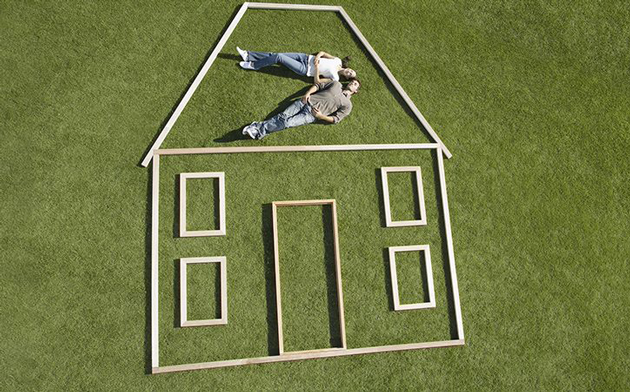Across the United States, 35% of households are renting.
On the surface, this indicates a vast divide between homeowners and renters. However, that gap has been steadily shrinking over the past couple years. (For more on renting vs. owning, check out these stats.) This reluctance to buy isn’t exactly coincidental. (Hint: The current housing market heavily favors the seller.) Beyond that, it’s difficult to stay so committed to future plans, and ownership represents a long-term investment to a single location and consistent budget. In the age of streaming media and subscription-style cell phone plans, “commitment” and “long-term investment” start sounding like dirty words.

Despite those mental (and financial) hurdles, there are plenty of reasons to become a homeowner. Homeownership can build wealth over time and grant tax deductions you’d never see as a renter. Also, interest shrinks as a mortgage is paid off, while rent costs tend to grow. Even after taking potential risks into account, buying a home can be a financially beneficial long-term decision.
Still, there’s a lot of information out there on home-buying, and it can be a little intimidating when you’re shopping around for the first time. We asked Mike Lavender, SELCO’s Mortgage Manager, how renters can figure out when they might be ready to buy.
“It comes down to just a few items,” Mike says.
1. You can get a mortgage comparable to your rent.
The first and simplest question potential buyers need to ask is if mortgage payments fit into their monthly budgets. If you’re currently renting, compare your rent to your potential mortgage. If you need help adding all the components, check out SELCO’s Mortgage Calculators to help put together an initial estimate.
Even if the mortgage is a bit higher than your rent, keep in mind that mortgages have a few advantages. For one, most are built around fixed rates. This means that your monthly payments won’t increase over time. “Rent,” Mike reminds us, “only ever goes up.” Additionally, rent has no chance of any return on investment, while the value of your home can (and usually does) rise.
It's important to note that not all mortgages are created equal. Some come with a rate discount and rate lock, meaning you can take your time and shop with confidence that your rate won’t go up during the lock period (even if market rates do).
2. You plan to stay put at least three years.
The three-year rule of thumb isn’t written in stone, but it does give a rough benchmark for whether you’re at the right stage in life to become a homeowner. Why three years? As mentioned above, paying off a mortgage shrinks the size of your interest payments. It usually takes about three years for the amount saved on shrinking interest to pull even with the rent you’re no longer paying. Those savings will also need to cover your closing costs for the investment to truly break even.
3. You can handle the responsibility of maintenance.
Maintenance is the hidden price tag when buying a property. “Even a new home will require upkeep and maintenance,” Mike notes.
This can be a tough adjustment for someone used to calling a landlord when a faucet leaks or a water heater fails. Make sure you’re able to maintain an emergency fund for these inevitable repairs and replacements.
Buying vs. renting is a complex decision, but it doesn’t have to be complicated. A lot of information for homeowners focuses on ways to game the system to find the best possible rates. You’ve probably come across advice about buyers’ and sellers’ markets, high and low interest rates, or how much you should put down as the initial down payment.
“These things can make it easier or harder to find the right home, but they don’t change you as an individual,” Mike says.
The reality is that homeownership depends more on your current situation than the market’s situation. A “good time to buy” doesn’t necessarily mean it’s the right time for you.
As with all financial decisions, you know your own housing needs best. The tips above are guideposts, but only you can decide your long-term goals. But if you ever need any questions answered along the way, our team of loan officers is here to help.


